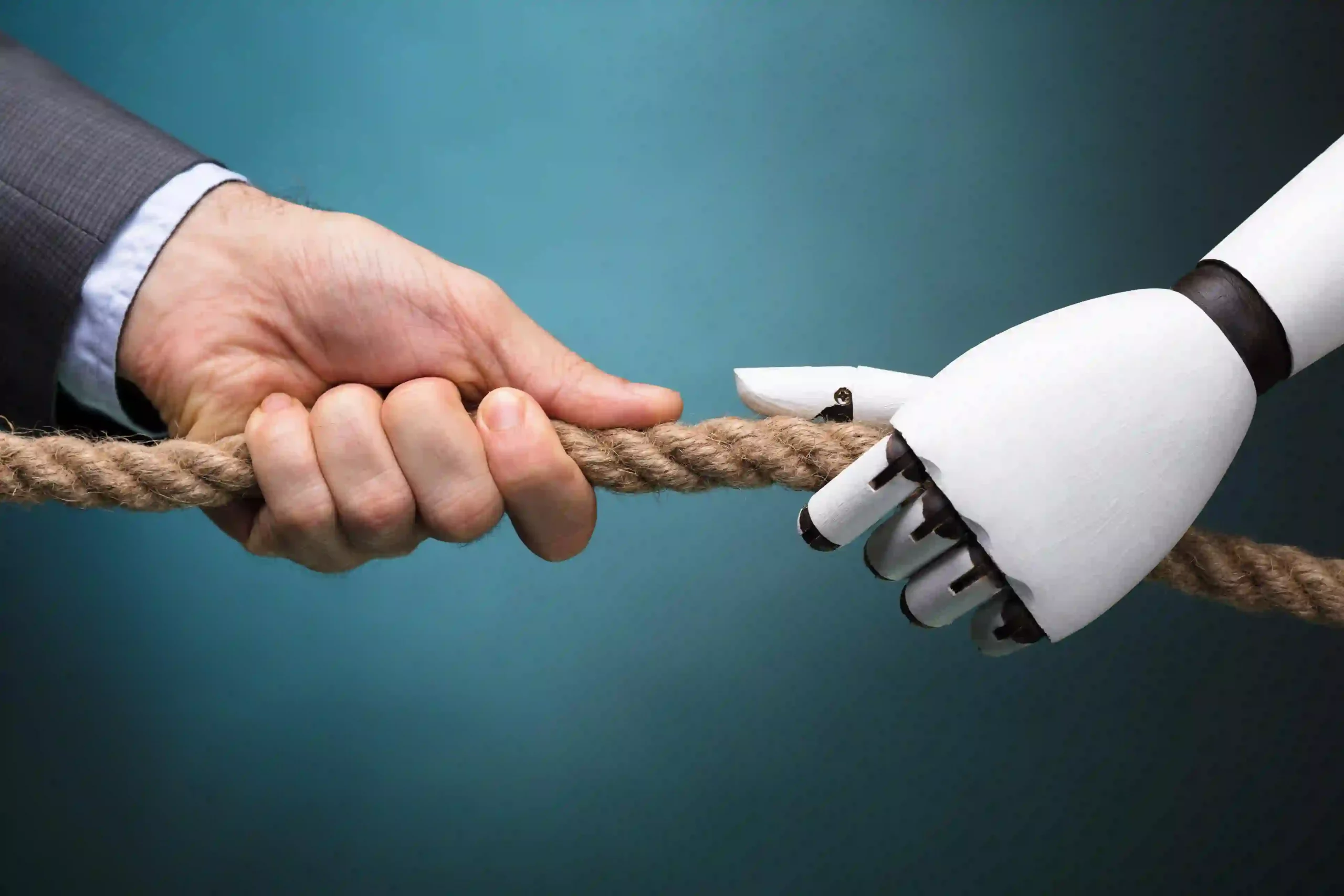Is your working life being controlled by a robot? Or are the bots simply making your job a lot less tedious?
It’s becoming the big question of today’s workplace – and a topic that’s going to continue to get hotter as Artificial Intelligence (AI) works its machine fingers further and further into every nook and cranny of our lives.
Sometimes, the results of AI in the workplace can verge on disturbing.
Some pickers at Amazon’s giant warehouses complain that that monitoring technology forces them to work at a relentless pace – and that the machines also provide the ticking-off if they don’t keep up.
But elsewhere, human beings are finding that robot functions are taking the strain of mundane and repetitive tasks away from them, allowing them to spend their valuable time on more rewarding work.
We can’t even begin to say how far AI and automation will change our working lives. Forecasts say that some jobs will be completely replaced – bookkeeping and telemarketing are among those said to be at risk.
But in other working areas, AI will be nothing less than a liberating force. So in the war of workers v robots, who’s really going to be the workplace winner?
It probably comes down to the kind of workplace and the kind of work.
As commentator Gaby Hinsliffe of The Guardian so correctly says:
“The mark of human jobs is an increasing understanding that you don’t have to know where your employees are and what they’re doing every second of the day to ensure they do it; that people can be just as productive, say, working from home, or switching their hours around so that they are working in the evening.”
As workplace experts, we’d completely agree with this.
Agile working is on the increase around the globe, and that’s a good thing because at one and the same time it boosts worker wellbeing and helps organisations reduce the cost of expensive office rentals.
So what are the good bots working busily away to improve workers lives today?
You’ve probably never noticed them – we’re not talking about Robbie the Robot, with metal hands and flashing eyes…
But if your workplace is enlightened enough to use a workspace booking system with occupancy sensor technology, the bots are on their way.
These clever systems make it a cinch for workers to locate a hot desk or a meeting room and quickly settle into their work with no need to even look at a booking diary. While this is impressive in itself and time-saving it is the wealth of data that a system with occupancy sensor technology collects where the AI can come into play.
In a complex office environment with thousands of workers using desks and meeting rooms daily there is a premium on real estate.
AI can take the complexity out of crunching data to produce utilisation reports and can save hours modelling savings on future real estate expenditure.
Occupancy sensor technology is just one enabler of AI in the workplace. Other aspects of technology making an impact include:
Drones – they are now being used to clean windows spotlessly. What’s more they are also being used to check on the condition of the building – saving precious and precarious man-hours climbing on roofs or checking the structure of the building.
Autonomous Guided Vehicles – from deliveries to porterage these ingenious vehicles can free humans from low level work. They can do more than that – they can also clean the floors to a high finish. And when they have finished their chores, they will handle the recycling.
Actoids – speaking of cleaning, actoids are human-looking robots which can clean the toilets. When they aren’t doing that unpleasant task they make excellent security guards. The cost savings are significant and your staff can rest assured of 24/7 protection.
In fact, in terms of AI the actoid offers the most utility as they can be deployed in a number of settings where you might usually expect a human, such as on reception.
Smart Apps – application software designed to support business activities which are highly people-intensive and prone to change.
Smart apps can be used for room booking, security control and mechanical and electrical maintenance.
In planned and reactive maintenance smart apps are coming into their own as it’s no longer necessary to schedule repeat task; apps schedule a follow up once the initial task is completed.
These apps will also give the operative all the details they need to do the job and keep an audit trail of completed works.
Where it gets really exciting is in the realm of predictive analytics.
Using all the data collected from such apps it’s possible to, say, predict where a building is about to fail or where cost reductions can be made in real estate in terms of under-utilised meeting rooms and hot desks.
Expert predictions are that robots, while taking over routine functions, will not cause job losses. In fact, a study by Prof Leslie Wilcox of the London School of Economics says staff will be kept on to do more interesting things.
“It takes the robot out of the human,” he says.
Workers v robots? Looks like it might be workers + robots instead – and that sounds like a victory all round.



